Introduction to the University of Tsukuba
Overview
The University of Tsukuba (Japanese: 竹波大學, abbreviated as 竹波大/つくばだいがく) is a national comprehensive university located in Tsukuba City, Ibaraki Prefecture, Japan. It was founded in 1872. Its history can be traced back to the Tokyo Normal School established in 1872. In 1973, Tokyo Kyoiku University was officially renamed the University of Tsukuba, becoming a model of new universities in Japan. The University of Tsukuba is a member of Japan's Super International University Plan (Class A) and one of Japan's famous national comprehensive universities.
Campus
The main campus of the University of Tsukuba is located in Tsukuba City, Ibaraki Prefecture, covering an area of approximately 258 hectares. It is the second largest single university campus in Japan. The campus has a beautiful environment and advanced facilities, and is known as the "University in the Forest".
Educational Philosophy
The educational philosophy of the University of Tsukuba is to cultivate outstanding talents with international vision, innovation ability and social responsibility. The school emphasizes interdisciplinary education and research, pays attention to the all-round development of students, and encourages students to actively participate in social activities and international exchanges. The school is committed to contributing to the progress of society and mankind through high-level education and research.
Disciplines and Faculties
The University of Tsukuba has multiple academic groups (academic groups are equivalent to traditional faculties), covering a wide range of subject areas:
Humanities and Culture Group: including literature, history, philosophy, sociology, etc.
Social International Group: including economics, business, politics, law, etc.
Humanities Group: including education, psychology, social welfare, etc.
Life Environment Group: including biology, ecology, environmental science, etc.
Science and Engineering Group: including mathematics, physics, chemistry, materials science, mechanical engineering, electrical and electronic engineering, etc.
Information Group: including computer science, information engineering, information systems, etc.
Medical Group: including medicine, pharmacy, nursing, etc.
Sports Specialized Group: including sports science, kinesiology, coaching, etc.
Art Specialized Group: including fine arts, design, music, etc.
Comprehensive Arts and Sciences Group: including interdisciplinary research, integrated science, etc.
Graduate School includes:
Graduate School of Humanities and Social Sciences: offers master's and doctoral degree programs in the fields of literature, history, philosophy, sociology, etc.
Graduate School of Social and International Sciences: offers master's and doctoral degree programs in the fields of economics, business administration, political science, law, etc.
Graduate School of Human Sciences: offers master's and doctoral degree programs in the fields of education, psychology, social welfare, etc.
Graduate School of Life and Environmental Sciences: offers master's and doctoral degree programs in the fields of biology, ecology, environmental science, etc.
Graduate School of Science and Engineering: offers master's and doctoral degree programs in the fields of mathematics, physics, chemistry, materials science, mechanical engineering, electrical and electronic engineering, etc.
Graduate School of Information Sciences: offers master's and doctoral degree programs in the fields of computer science, information engineering, information systems, etc.
Graduate School of Medicine: offers master's and doctoral degree programs in the fields of medicine, pharmacy, nursing, etc.
Graduate School of Sports Sciences: offers master's and doctoral degree programs in the fields of sports science, kinematics, coaching, etc.
Graduate School of Arts and Sciences: offers master's and doctoral degree programs in the fields of fine arts, design, music, etc.
Graduate School of Integrated Arts and Sciences: offers master's and doctoral degree programs in interdisciplinary research, integrated science and other fields.
Features
Interdisciplinary education: The education system of the University of Tsukuba adopts a unique academic group system, breaking the boundaries of traditional academic disciplines and emphasizing interdisciplinary education and research.
Research University: The University of Tsukuba is one of the few research universities in Japan that aims at scientific research, with multiple high-level research institutes and laboratories.
International Exchange: The school has established cooperative relations with universities in many countries and regions, providing students with abundant international exchange and internship opportunities.
Industry-university-research cooperation: The school cooperates with many companies and research institutions to carry out joint research and internship projects, providing students with abundant practical opportunities.
Featured Research Institute: The school has multiple research institutes, such as the Graduate School of Life Sciences of the University of Tsukuba and the Graduate School of Sports Sciences of the University of Tsukuba, providing researchers with advanced research platforms.
Ranking
According to the 2024 QS World University Rankings, the University of Tsukuba ranks 355th among universities in the world. The school is particularly outstanding in the fields of life sciences, medical technology, natural sciences, and social sciences.
Cost
The tuition fee of the University of Tsukuba is relatively reasonable because it is a national university. Generally speaking, the annual tuition for undergraduates is around 535,800 yen, while that for graduate students may be slightly higher. In addition, there are other fees such as admission fees and facility fees.
Campus Life
The campus environment of the University of Tsukuba is beautiful and the facilities are modern. The school offers a variety of club activities and academic research opportunities to help students develop in an all-round way. The school has also established cooperative relationships with many well-known universities around the world, providing students with abundant international exchange and internship opportunities.
Internationalization
The University of Tsukuba attaches great importance to international education and offers a variety of international exchange programs and courses taught in English. The school has established cooperative relationships with universities in many countries and regions, providing students with abundant overseas study and internship opportunities. The school enrolls a certain number of international students every year, and the proportion of international students increases year by year, creating a multicultural and international learning environment.
Contact Information
Address: 〒305-8571 Tennodai 1-1-1, Tsukuba City, Ibaraki Prefecture
Tel: +81-29-853-5111
-
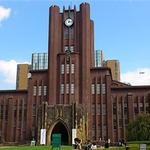
The University of Tokyo
-
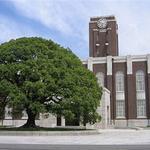
Kyoto University
-
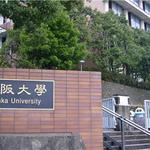
Osaka University
-
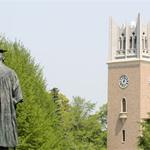
Waseda University
-
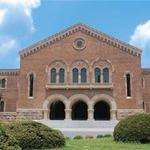
Hitotsubashi University
-
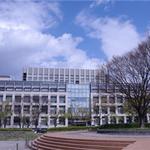
Nagoya University
-
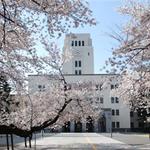
Tokyo Institute of Technology
-
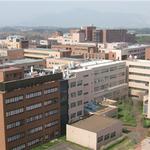
University of Tsukuba
-
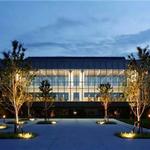
Keio University
-
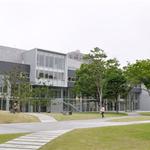
Tohoku University
-

Mesoamerican University
-

Istmo University
-

Mariano Galvez University of Guatemala
-

Regional University of Guatemala
-

Galileo University
-

Francisco Marroquín University
-

Rafael Landívar University
-

University of the Valley of Guatemala
-

University of San Carlos of Guatemala
-

Technological Institute of Tlaxcala Plateau
-

Golfo University
-

Technological University of South Sonora
-

Technological University of Huejotzingo
-

Tizimín Institute of Technology
-

Chilpancingo Institute of Technology
